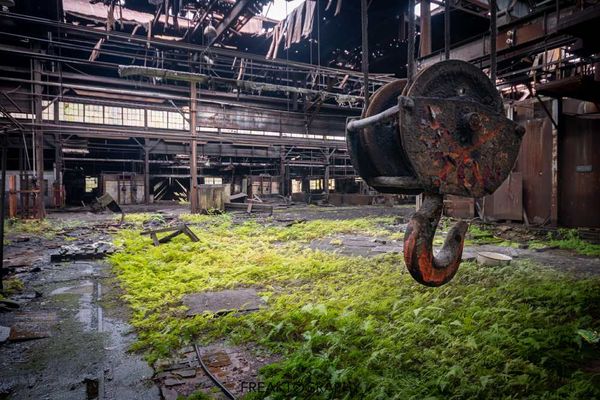by Daniel Girma
Since November, France has been gripped by its fiercest protests since the “Yellow Vest” movement of 2018-19. The cause: a new bill proposed by President Emmanuel Macron’s fragile coalition government that would limit the ability to record and distribute images of the police. Any imagery "with the aim of damaging the physical or psychological integrity" of police officers can no longer reveal faces or badge numbers and must omit anything that could identify the officers involved.
From Libération to Les Echos, the French media decries what it sees as a danger to free speech. And with a public whose trust in police efficacy has dropped from 68 percent in mid-2019 to 50 percent in January 2020, Macron’s bill runs against the grain of popular opinion.
But within the din of dissent, there is a surprising defender. The morning after the National Assembly voted in favor of the bill, Marine Le Pen, the right-wing nationalist leader of the National Rally (RN) who won the 2017 presidential election by the highest margin a French far-right candidate ever has, chose to criticize the protesters and not Macron. She defended law enforcement, “of whom the vast majority do a remarkable job.” Even politicians such as Damien Abad, the establishment-conservative Les Républicains’ (LR’s) leader in the National Assembly, have shown similar support for the bill.
This tone contrasts with that of Marc Fesneau, former president of the centrist Democratic Movement party, the closest political ally to Macron. On Le Figaro’s “Le Talk,” Fesneau recounted his camp’s shock at the bill’s introduction. “There wasn’t anger to the point of needing reconciliation,” he said.” “But there was a delicate episode between [the two parties].”
The uproar surrounding this bill is just the latest bind that Macron and his party, La République En Marche! (LREM), find themselves in. Scrapping their lofty goals of broad political cooperation may appease the right-wing faction of their coalition, but this stopgap strategy could come at a cost. These kinds of concessions are the only way for Macron to secure his presidency, but they may ultimately leave France vulnerable to populist nationalism.
This is the type of maneuvering Macron hoped to avoid when he first took office in 2017. His victory was meant to signal a break in the nationalist wave that had surged following the 2015 refugee crisis, but this “break” proved to be merely a trough. In the two years since his election, far-right parties have entered government coalitions in Austria and Italy and won a record number of seats in the European Parliament. And as Germany’s September federal elections loom with Angela Merkel’s Christian Democratic Union (CDU) in disarray, Macron believes France might once again have to play the role of liberal defender—even if it means breaking with his own ideals.
In William Drozdiak’s 2020 book on the Macron Administration, The Last President of Europe, Macron told the author that “a politician must sometimes make short-term adjustments…in order to achieve long-term political visions.” But he should not underestimate the trend that Le Pen marked in her 2017 concession speech: a “wide political redraw” that pits populism against the establishment. Macron may see his courtship of the establishment right as preserving liberal democracy in France and even Europe, but it could have the opposite effect. It may open the door to the far right, who could infiltrate and wreak havoc in French politics.
Continental Europe has been struggling with far-right threats for some time: Germany, the Netherlands, Italy, and Austria are governed by grand coalitions formed by opposing parties in the hope of keeping populists at bay. But in 2017, the CDU was forced to join with the center-left Social Democratic Party. “The similarity between [the results] and those of 1930 [was] striking,” said historian Charles Maier: both elections ended with a left-right coalition aimed at keeping the far-right out of government. In the case of 1930, the coalition was a desperate one that ultimately failed, creating a vacuum that Hitler’s Nazi party rushed to fill.
This type of grand coalition is a phenomenon modern France has never experienced, until now. LREM’s members do not have to rescind their previous party allegiances to join; members range ideologically from Socialists to Republicains. The cabinets formed by both Éduoard Philippe and Jean Castex, the two prime ministers who have served under Macron, featured groundbreakingly multi-colored cabinets that crossed the aisle. But in the National Assembly, this coalition-in-all-but-name has basically disappeared. Last September, Pierre Person resigned as Chairman of LREM due to what he felt was the party’s failure to move on from their presidential victory.
“The movement is stuck in the agenda of 2017, which was to win the presidency,” Person said in an interview with Le Monde. “It no longer produces new ideas. We must have political debates in this party! By becoming like the old political formations, it risks quite simply disappearing.”
Absent its own philosophy, LREM has been steadily shifting rightward as it falls victim to conventional French politics. Macron’s conservative reforms concerning asylum, labor, and pensions were early examples of this gradual trend to the right. Last November, after a string of Islamist terrorist attacks, he announced a campaign to “reform” Islam in France. The government has since produced a “Reinforcing Republican Principles” bill, which the left fears could blur secularism and discrimination. Last May, 17 members of LREM defected to the left, costing the president an absolute majority in the National Assembly. Macron’s big tent has no one in it.
With France’s National Assembly shifting away from Macron, a coalition government in 2022 is possible. But what would it look like? The answer might be found in France’s municipal elections last year.
LREM was trounced, suffering major losses in an election that experienced historically low turnout. In eight of the 20 largest cities in France, the party was a no-show, endorsing members of other political parties, most of whom still lost. It was a consequence of LREM not rooting for itself in local politics since Macron became president. Meanwhile, the left scored big locally, capitalizing on having been the face of the country’s pandemic response, and benefiting from an energized ecological movement. Pierre Jouvet, spokesman for the Socialist Party, called it “the first big victory for the left in eight years.” He also declared a grand reconstruction in left-wing politics.
“The issue isn't whether the Greens or the Socialists won,” Jouvet said. “We showed that when we join together, we are able to elicit hope."
The elections were a grand rebuke of Macron’s “Third Way” and set the stage for a contentious legislative election in 2022. There is even the possibility of the first “cohabitation,” in which a president faces a parliament ruled by the opposite party in decades.
If Macron does not achieve an outright majority in the Assembly, he will have to reckon with the past five years he’s spent leaning to the right. Left-wing parties might not be interested in coming to the table. What’s more, a marriage with the conservative Les Republicains could come at a price: the losses that LR experienced in the municipal elections mostly involved candidates that were jointly supported by LREM. If a coalition must be made, Macron will have to decide which direction to turn.
As long as LR, which represents the conventional right in France, rejects the prospect of collaboration with the far right, Macron will have no difficulty coming to an agreement with them. Western European politics today have dealt with far-right parties by isolating them in cordon sanitaires. But there have been signs of breakage. Municipal coalitions in Germany between the CDU and the far-right Alternative for Germany (AfD) have been reported in Saxony and Thuringia. In February 2020, the CDU candidate for Minister President of Thuringia won after the AfD surprisingly voted for him. He resigned as a matter of principle.
Cracks are starting to appear in France as well. A handful of prominent LR members have left the party, either siding with Le Pen or flying their own flag. In an Odoxa-Dentsu opinion poll, 57 percent of LR supporters said they were open to the idea of a rapprochement with the far-right RN, with 66 percent of RN supporters willing to accept it. They show an even greater openness to compromise with the far right than CDU supporters in Germany, who are evenly split on cooperating with the AfD, according to a Der Spiegel survey. The LR and RN have already collaborated in municipal elections, forming a coalition in the Provence-Alpes-Côte d'Azur commune of Frejus.
"For the first time in an urban community, an alliance between the RN and LR elevated an RN executive and several of his deputies," said Jérémy Campofranco, a local delegate who denounced the partnership in an interview with Agence France Presse. "A glass ceiling has been broken."
Marion Maréchal, Le Pen’s niece and a former assemblywoman from the area, identifies this cross section as France’s biggest electoral prize in 2022. Once an RN member, the Independent Maréchal reproaches her aunt for an unwillingness to approach the more traditionally conservative voters within what has been dubbed the “Miscellaneous Right” for lack of a better umbrella term.
“We should not confuse the tide of elected LR officials, who are preparing to join Emmanuel Macron for the presidential election, with their voters,” Maréchal said in an interview with Le Figaro. “A part of LR, with an ambition for power in France, is uncompromising on immigration and sovereign issues, and will never follow Macron. However, they do not identify with RN either. It is an orphan electorate which forms a significant part of the 50 percent of abstention observed during municipal elections.”
Maréchal is not the only one to recognize this target group. Just last week, Xavier Bertrand, former ally of Nicolas Sarkozy (France’s president from 2007–2012) and regional president of Hauts-de-France, announced his candidacy. Running as an independent, Bertrand hopes to wedge himself between Macron and Le Pen to siphon that orphan electorate.
Macron, lacking a plan B, has decided to reach for this group as well, even if it chafes against his own political beliefs. In The Last President of Europe, Drozdiak reveals that Macron “confessed [to him] that he found it hard to reconcile certain inconsistencies between his principles and his politics.”
If Macron is pursuing a closer allegiance with the right, he must beware the risk. Right-wing rejection of Le Pen’s nationalism is less rigid than it was three years ago. Left-wing participation in his political project is diminishing. As he balances his politics and principles, Macron must guard himself against the right-wing thaw occurring abroad and at home.
Daniel Girma is Laid Off NYC’s content curator and co-edits our Politics section. Get to know him better: @dangirmanyc
*Thumbnail graphic created by Dan Girma.



